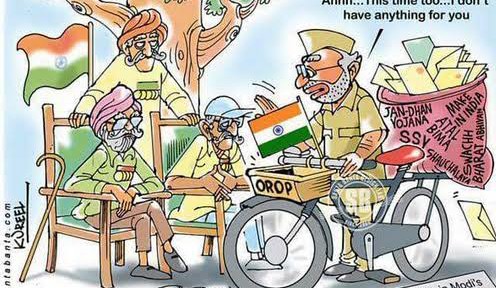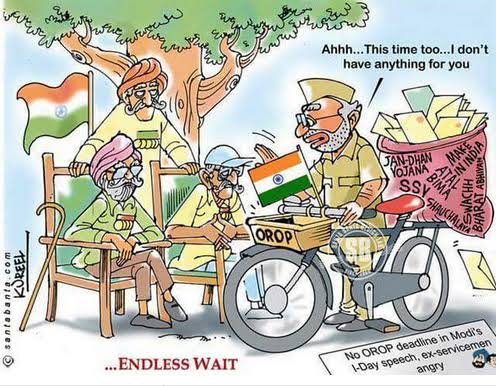Breathes there a man or woman who hasn’t read Coleridge’s ‘The Rime of the Ancient Mariner’ with its famous line: ‘water, water, everywhere, nor any drop to drink’? I doubt it.
The story of the sailor returning from a long sea voyage can be replicated, with hardly any variations, in the sea of social media and finally in the sea of life.
You may have hundreds and even thousands of ‘friends‘ on Facebook. Some of them may even Like what you put up and once in a while say “nice” “good one” and “hilarious” on your posts. But, it is all so that you will do the same for their posts. Most of them have no idea of what they have liked. Ultimately, on Facebook, as in life, you are by yourself. As Sahir Ludhianvi said in his famous Dev Anand number in Hum Dono (when I started writing this article it was 03 Dec, Dev Anand’s death anniversary):
Kaun rota hai kisi aur ki khaatir ai dil?
Sabako apani hi kisi baat pe rona aaya.
(Who weeps for someone else’s sake?
Everyone weeps remembering something of one’s own)
On Facebook or in life, you are a bore in case you have something to say. Your penchant about saying something fits in well with the definition of a bore: A bore is a person who continues to talk about himself when you want to talk about yourself.
A few years back, when emails just came into vogue, I was one of the early birds who opened an email account. By the time a close friend followed suit, I had a sizable fan following and I used to send each one of them (what I thought) interesting mails. When this close friend joined, I took him in too and started sending these mails to him. One fine day, he sent (forwarded) me a story about a hotel guest not wanting the housekeeping to keep giving him fresh soaps three times a day. He thus conveyed to me that my mails to him were as much a nuisance as the housekeeping bombarding the hotel guest with new soap bars kept all over the bathroom even when the guest hadn’t used the earlier ones. I took the hint and stopped the supply of mails to him. But, the story doesn’t end there. Very soon, he discovered the joy of sharing mails and felt that his were actually more interesting. So, he started sending mails. I didn’t have the heart of sending him back his soap-story.
Recently, he was a little more direct. He belatedly joined whatsapp and forbade me from repeatedly bombarding him with my posts. He said that his eyes get affected reading posts on the whatsapp. He said he’d rather read them on emails (the expression back to square one was intended for such a scenario).
Sabako apani hi kisi baat pe rona aaya…
These are, of course, lighthearted examples. But, seriously, the very nature of man is such that even for his existence he has to forever be concerned with self-preservation and own survival. Even when a friend doesn’t ask you, when face to face with your story, proposal, request, you can almost hear him ask, “What’s in it for me?”
That brings us to the question, “How many friends do you require in life?” And, the next question is even more harsh: “Do we really require friends in our life?” Here is one of the responses:

Friends are, indeed, like Happiness in one important aspect: you are better off not chasing them.
I have seen people actually displaying friends like trophies; such and such is a really influential person in Modi government or close to Shah Rukh Khan or Deepika Padukone…..we used to play gilli-danda together. I had this VVIP in one of my company’s sites. His name-throwing of friends at important positions in his part of the country used to make me think that the entire political and bureaucratic set-up in the state used to by dependent upon his advice.
Most often than not, people ain’t friendly with you but the position you hold. As soon as you retire or are transferred from the position, the friendship, such as the way it was, becomes more realistic and people realise what a bore (my children’s vocabulary has this word called loser; a very fascinating word) you were all along. The office where I work has this person whom I frequently call as the finest leader that I have come across. All my friends often echoed these thoughts of mine and added quite a few stories of their own regarding his sterling qualities, sagacity, professionalism, human-touch, and result-oriented approach towards everything. A year back the management side-lined him and brought a fire-brand, young and outstanding person in his place. Gradually I was stunned to notice that these friends gushed about the sterling qualities, sagacity, professionalism, human-touch, and result-oriented approach of – hold your breath – the new boss. They would begin every presentation with the oblique suggestion that somehow the wonderful, pragmatic ideas of the new leader were not even thought of by the earlier loser.
The way the world is made, after human life appeared on earth; it is a need that brought people together (You may refer to Abraham Maslow’s ‘Pyramid of Needs‘) . Relationships and friendships are either causes or results of this need. Else, these have no other special basis for existence. Religion and Spiritualism teach us that the sooner we are rid of – or at least less dependent upon – these needs, the better off we are.
Now, I am not suggesting that we go out of our way to offend people or have them as unfriendly. All I am saying is that don’t have friends as obsession or score-cards or trophies. If we can have one or two whose needs (I am using the world in its larger connotation) coincide with ours, these are much better than thousands who like everything that you say without even listening to it or reading it.
In this song penned by lyricist Indeevar for the 1967 movie Upkaar, one gets close to what the scriptures tell you:
Kasame vaade pyaar wafaa sab, baate.n hai.n baato.n kaa kyaa
KoI kisii kaa nahii.n ye jhuuThe, naate hai.n naato.n kaa kyaa
(Vows, promises, love, loyalty, all are mere words; and words mean nothing
No one belongs to anyone, these are false relations; and relations mean nothing)
Hogaa masiihaa saamane tere
Phir bhii na tuu bach paayegaa
Tera apanA khuun hii aakhir
Tujhako aag lagaayegaa
Aasamaan me u.Dane vaale miTTii me.n mil jaayegaa
(The Saviour would be in front of you
And yet you won’t be saved
Your own blood (relation) will ultimately
Light-up your funeral-pyre
O’ ye, who flies high in the sky now, you will be razed to the ground)
Sukh me.n tere saath chale.nge
Dukh me.n sab mukh mo.De.nge
Duniyaa vaale tere banakar
Teraa hii dil to.De.nge
Dete hai.n bhagavaan ko dhokhaa, inasaa.n ko kyaa chho.De.nge?
(They will walk with you in good-times
And turn their face away in bad times
The worldly people who become yours
Will (finally) break your heart
They deceive God too; why would they leave human beings?)
Happy New Year, Friends!

























































